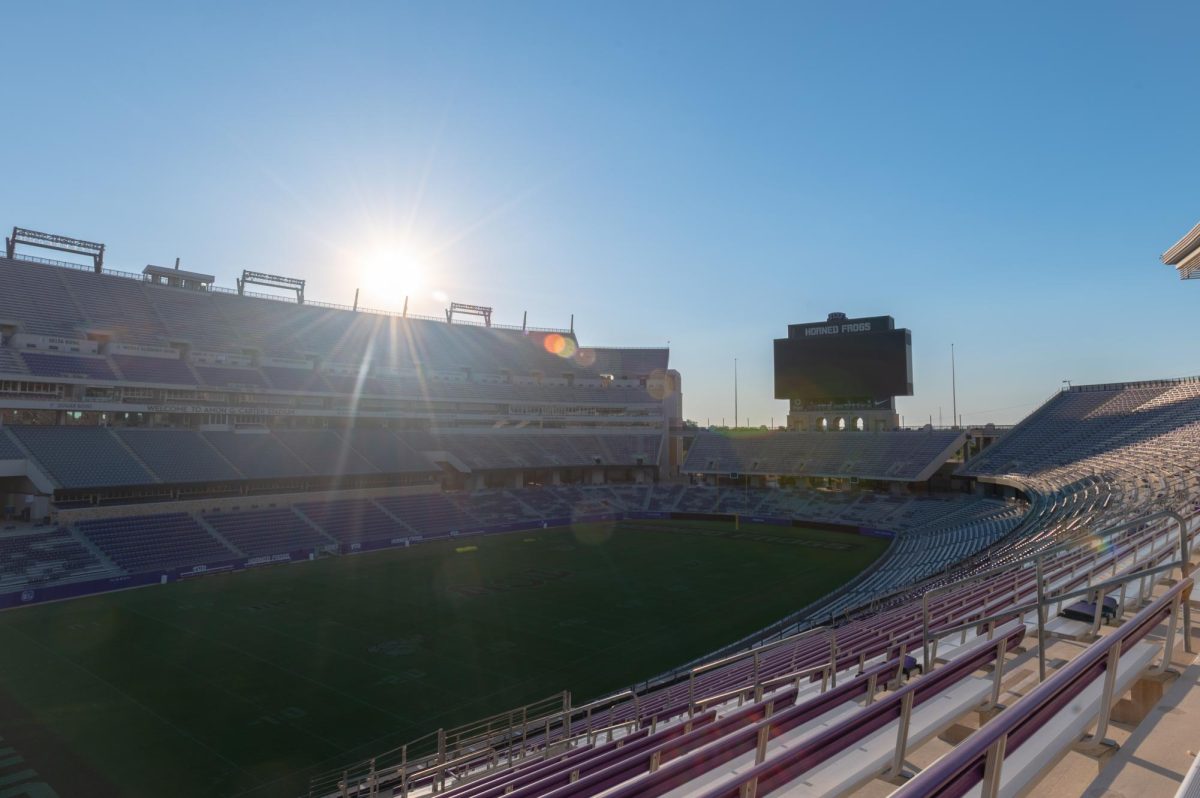The holidays are a bright and joyous time of the year for most, but University Christian Church reached out to those who may be struggling with grief and depression during the holiday season.
About 40 people attended the third annual Blue Christmas service held Sunday. The service was held to let them know that they are not alone.
“The focus is towards comfort, toward remembering and toward affirming who they are and where they are in the midst of their grief,” Alan Lobaugh, Senior Associate Minister, said.
Many factors can cause the “holiday blues”: stress, fatigue, unrealistic expectations, over-commercialization, financial constraints, and the inability to be with one’s family and friends, according to the Mental Health America website.
It is becoming more common for churches to hold similar services. Arborlawn UMC and Southcliff Baptist Church in the 109 held services before Thanksgiving.
The idea started with the former UCC interim Senior Minister Houston Bowers two years ago.
“He wanted to do a service for people for whom the holidays are not bright and happy and marvelous because of the losses or the grief that they have experienced,” Lobaugh said.
Poinsettias and a Chrismon tree, with religious symbolic ornaments, decorated the sanctuary, but serious, not sad music, set the tone rather than joyous Christmas carols.
The music for the service was chosen carefully and is not the joyful celebration of Christmas and of brightness and light, but is comforting, Lobaugh said.
The church made sure to try and have enough ushers and greeters so that people knew where they were going and felt comfortable.
A congregation member created a banner when the service first began two years ago for guests to write their name and a few words. The banner was draped over the communion table during the service and guests were invited up to sign it after the service.
“The banner is a concrete symbol, that has permanence with people adding to it each year,” Lobaugh said.
"The true loss when someone dies is the loss of a future story" Lobaugh said, as he began the service. He encouraged guests to take one tradition and celebrate it in honor of their loved one and not as a painful reminder of the past.
The four candles of the advent wreath were lit during the service, but they were used as symbols for different kinds of losses.
The first candle symbolized loss due to death. Different people were invited to light the advent candles and the first candle was light by two congregation members who work with the WARM place. The WARM place gives families emotional support and help after a death loss.
The second candle represented hidden losses, which could include homelessness, joblessness, addictions, incarcerations or any losses due to circumstances that are behind control or due to poor choices. A congregation member who works with UCC’s Room in the Inn program lit this candle.
The third candle represented the victims of family violence and the difficulties of divorce. Mary Lee Hafley, CEO of SafeHaven of Tarrant County, lit this candle representing losses of relationships, divorce and domestic violence. SafeHaven is a women’s shelter that aims to end domestic violence through a variety of programs and services they offer.
The last candle represented separation at Christmas for those in a service field or other reasons. Bill Arnold, a congregation member, lit this candle. Arnold served in the first division of the Marines in Afghanistan for a total of four years
Guests were invited up to light candles after each advent candle was lit, to reflect, to remember, to heal and to hope.
Different ministers shared short thoughts throughout the service, trying to remind guests how to make sense of grief and how to work through it.
To conclude the service, guests were invited to come up and sign the banner with their name and a few words and to gather in the gallery for conversation and refreshments.



